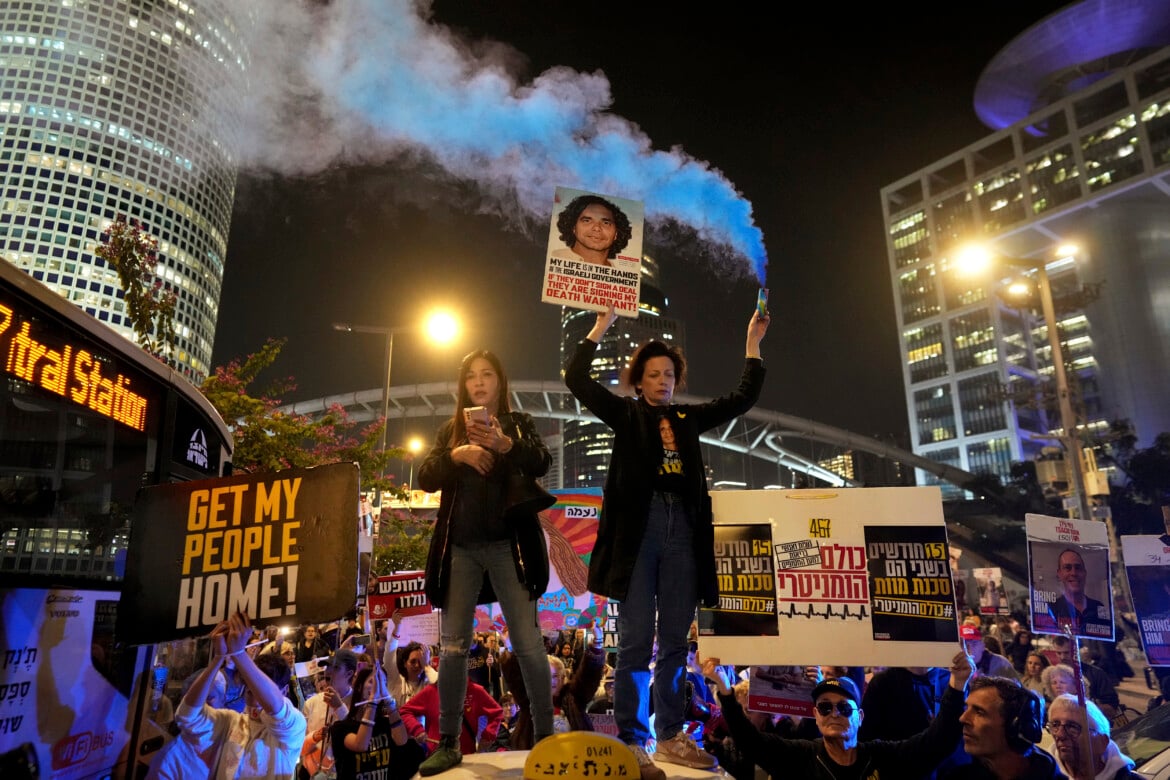Reportage
Bitter celebration in the streets: Israel wasted too much time
What is overshadowing the celebrations is first of all the knowledge that this agreement, with the same clauses, could have been approved months ago when it was first proposed, preventing the sacrifice of so many lives on both sides for reasons that remain unclear.

With three days to go before the projected start of the first phase of the agreement, scheduled for Sunday, there are mixed feelings among Israel’s population around the wait for the hostages to be released.
There is clear excitement in the public spaces, but at the same time, doubts, questions and resentment leave no room for the joy that had accompanied previous hostage releases.
What is overshadowing the celebrations is first of all the knowledge that this agreement, with the same clauses, could have been approved months ago when it was first proposed, preventing the sacrifice of so many lives on both sides for reasons that remain unclear.
Then, the chronic distrust in Prime Minister Benjamin Netanyahu and the pressure on him from the fundamentalist right-wingers, who particularly oppose the second phase of the agreement, is making Israelis feel uneasy, as they cannot rule out possible twists and turns at some further stage of the plan’s implementation.
Moreover, the perception that Trump's impending inauguration was the deciding factor leading to Netanyahu's “surrender” raises important questions about the lack of results of the superhuman effort from the part of the population that has been demonstrating every weekend for two years while apparently being ignored. What does this tell us about the social contract between the Israeli government and its citizens?
There is, of course, disquiet about the possible political scenarios as well. While Netanyahu is aware that the polls are currently not in his favor, the changes taking place in the Middle Eastern landscape, in Syria, Lebanon, and Iran, as well as a certain return of optimism about the Abraham Accords, would give him a definite margin of advantage that he could leverage once again by going to early elections.
The specter of the reform that is still moving forward, aimed at weakening the judiciary, that of a possible civil war related to the longstanding issue of the exemption of the ultra-Orthodox from compulsory military service, and, above all, the need to start investigations that will finally provide answers are just some of the specters that haunt a post-ceasefire reality.
Thus, the return of the hostages and a ceasefire – more or less permanent – also represent the beginning of an awakening that Israel can no longer postpone and that can only prove to be extremely painful, especially in view of the increasing number of testimonies of soldiers returning from Gaza recounting facts that had been kept hidden. Added to this are questions about who will rule Gaza in the short and medium term and the political and military future of Hamas.
Regardless of these thoughts clouding their outlook, Israelis nevertheless feel the moral imperative to make room for the hostages and their families, ensuring the best possible welcome for them. Thus, preparations have been going ahead at full speed for days at major hospitals to be ready to manage the survivors' mental and physical health.
However, more than 470 days of captivity is an unprecedented amount of time when it comes to civilians, and mental health workers are being called upon to meet a challenge that has no precedent in the literature. What can one do when faced with such complex trauma?
According to experts, the contribution of the families will be essential, but most important will be restoring their freedom of choice. Each returning hostage must be allowed to see themselves as autonomous and in full control of what happens to them, starting with the small decisions of daily life.
Thus, nothing should be imposed on them, nor insistently requested, so that the “agency” lost in the course of captivity can return to being part of their reality, after being deprived for so long of the ability to determine their own fate.
The hope of seeing them reintegrated into society as soon as possible is a humane and legitimate one, but whether this is possible and how long the rehabilitation process will take remains unknown. The only certainty at the moment is that the ceasefire deal, even if it came far too late, is truly the only right thing to do, and that one must face all consequences in the private and public spheres with this awareness.
Originally published at https://ilmanifesto.it/la-festa-per-gli-ostaggi-e-amara-si-e-perso-troppo-tempo-e-si-teme-il-passo-indietro on 2025-01-17
